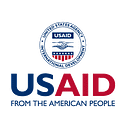Get To Know: CATALYZE Early Childhood Care and Education (ECCE) Family of Investments
CATALYZE: Background
USAID CATALYZE (2019–2027), implemented by Palladium, is a $250 million contract designed to mobilize $2 billion in private capital towards underserved sectors, geographies, and populations. The CATALYZE Education portfolio demonstrates commitments by USAID and Palladium to test creative blended finance solutions across different education sectors, models of intervention, and country contexts. CATALYZE co-creates with Missions, Bureaus, and Independent Offices (MBIOs) to design multi-year, results-based activities that are managed by Palladium and implemented by a broad network of principally locally led implementing partners.
Get To Know: CATALYZE Education is a new series that sheds light on different elements of the USAID CATALYZE Education portfolio, which pilots multiple models in multiple countries across Africa, Latin America the Caribbean (LAC), Middle East, and South Asia by mobilizing private sector capital, particularly for non-state schools and education enterprises. The three activities under the CATALYZE Education portfolio include CATALYZE EduFinance Africa and LAC, CATALYZE Early Childhood Care and Education (ECCE), and Access to Finance (A2F).
CATALYZE Early Childhood Care and Education (ECCE) Family of Investments: Our Approach
Enhancing access to low-cost and high-quality early childhood care and education (ECCE) improves child learning and development, promotes women’s economic empowerment, enhances family welfare, and drives overall economic growth. Expanding access to high-quality ECCE is a multifaceted issue. The World Bank estimates that currently, 40 percent of all young children lack access to appropriate childcare, which is one of the reasons that 606 million women worldwide are excluded from the global labor force. Women assume 75 percent of childcare responsibilities, so a lack of accessible, high-quality childcare options has significant knock-on impacts on women’s ability to engage in the labor force, as well as for overall economic productivity and growth (Devercelli & Beaton-Day, 2020). In addition, less than half of children living in low- and middle-income countries are enrolled in pre-primary education. Pre-primary education systems are still developing in many countries, and the quality and coherence of the services are fragmented. These emerging systems require a strong governance structure, tailored professional development programs, and reliable information about program quality and child outcomes in order to meaningfully contribute to universal access to pre-primary education.
In response, CATALYZE has launched the ECCE Family of Investments (FOI) in eight countries across Africa (Ethiopia, Liberia, Malawi, Rwanda, South Africa), LAC (Honduras, Paraguay), and South Asia (India). These interventions, which are tailored to each country’s unique context based on market assessments conducted by CATALYZE, collectively expand access to high-quality ECCE while generating and disseminating learnings about effective ECCE models. The CATALYZE ECCE Family of Investments uses a blended finance approach — the strategic use of USAID funds and private capital — to advance a triple dividend of i) improved early childhood development and learning outcomes, ii) increased women’s economic empowerment, and iii) job creation.
Family of Investment Activities
CATALYZE Together for Early Childhood Evidence (T4ECE)
CATALYZE Together for Early Childhood Evidence (T4ECE) bridges gaps between policy, practice, and research in early childhood education. The T4ECE Activity supports research activities in Malawi, Liberia, Rwanda, South Africa, and Ethiopia to explore how pre-primary education systems can better use data to improve service quality and ultimately young children’s early learning and development outcomes.
ECCE LAC
ECCE LAC will increase access to high-quality ECCE for the most marginalized and vulnerable 0–6-year-old children in Honduras and Paraguay, with a focus on children in the non-compulsory first (3–4 years old) and second (4–5 years old) years of pre-primary education (educación pre-basica). Activities aim to improve ECCE quality and support professionalization of ECCE providers, as well as deliver market-based solutions that increase opportunities for employment through the formal and informal labor markets, with an emphasis on women’s empowerment.
ECCE India
ECCE India is designed to improve school readiness through activities co-created with government and local partners in two states, Rajasthan and Telangana. The activities will focus on strengthening Anganwadi centers and their support systems by improving professional development for AWC workers and teachers, engaging parents in promoting quality learning and care, and increasing funding from non-state stakeholders.
Lead-Safe ECCE South Africa
Lead-Safe ECCE will mitigate the effects of lead in early childhood development (ECD) centers through i) identification of the primary sources of lead exposure within and around ECD centers, ii) social and behavior change interventions, including handwashing and cleaning protocols; iii) remediation efforts to remove contaminated materials in ECD centers; and iv) private sector engagement (e.g., exploring ways private sector can support to provide infrastructure improvement and ensuring a supply of lead-safe materials and resources). The Activity leverages CATALYZE’s pre-existing work and partnerships in South Africa to improve access to finance for ECD centers and deliver new technical innovations in learning and teaching. Read more.
Learning and evidence building
CATALYZE Education reflects a diverse set of approaches that have and will continue to yield substantial learning and evidence. This knowledge will continue to be used to build USAID’s and the wider community’s understanding on how to best invest in blended finance solutions. All learning and evidence generated under CATALYZE ECCE is integrated into the CATALYZE Education’s wider efforts to make the case for blended finance approaches that address global education funding gaps and improve and sustain learning outcomes for children and youth globally.
Read more about our technical models employed across Africa and LAC.
